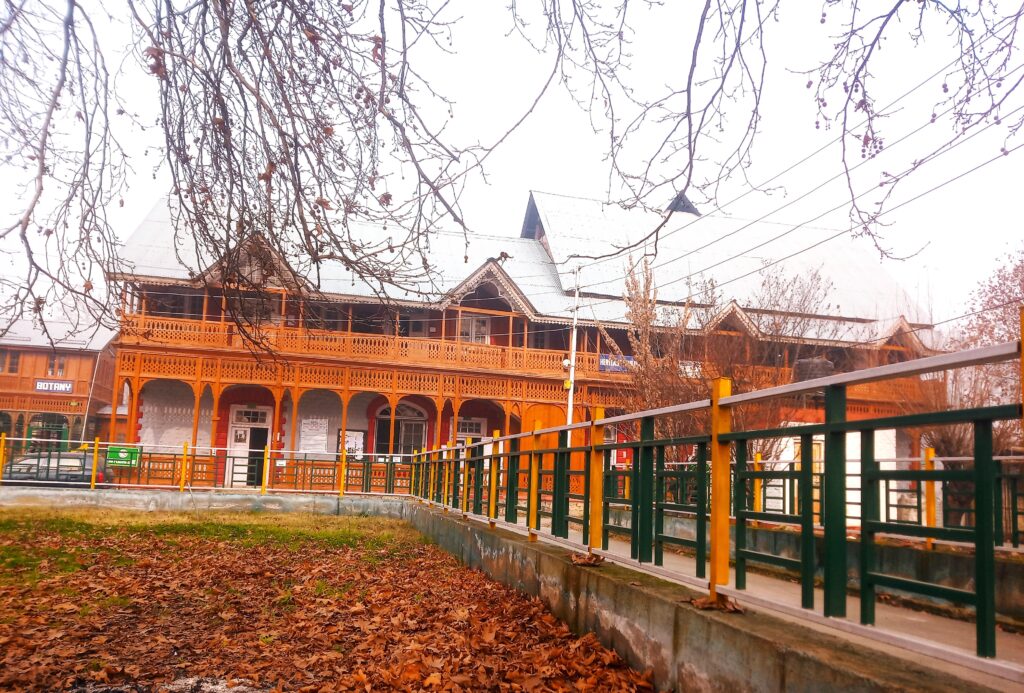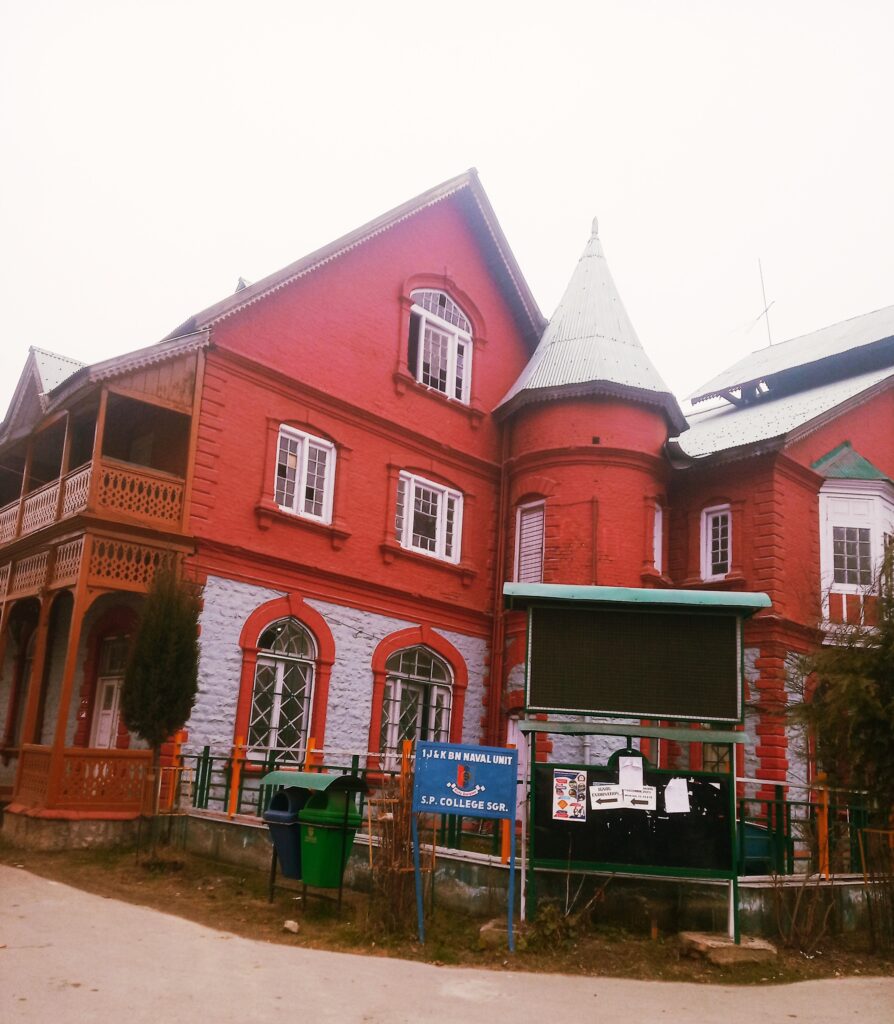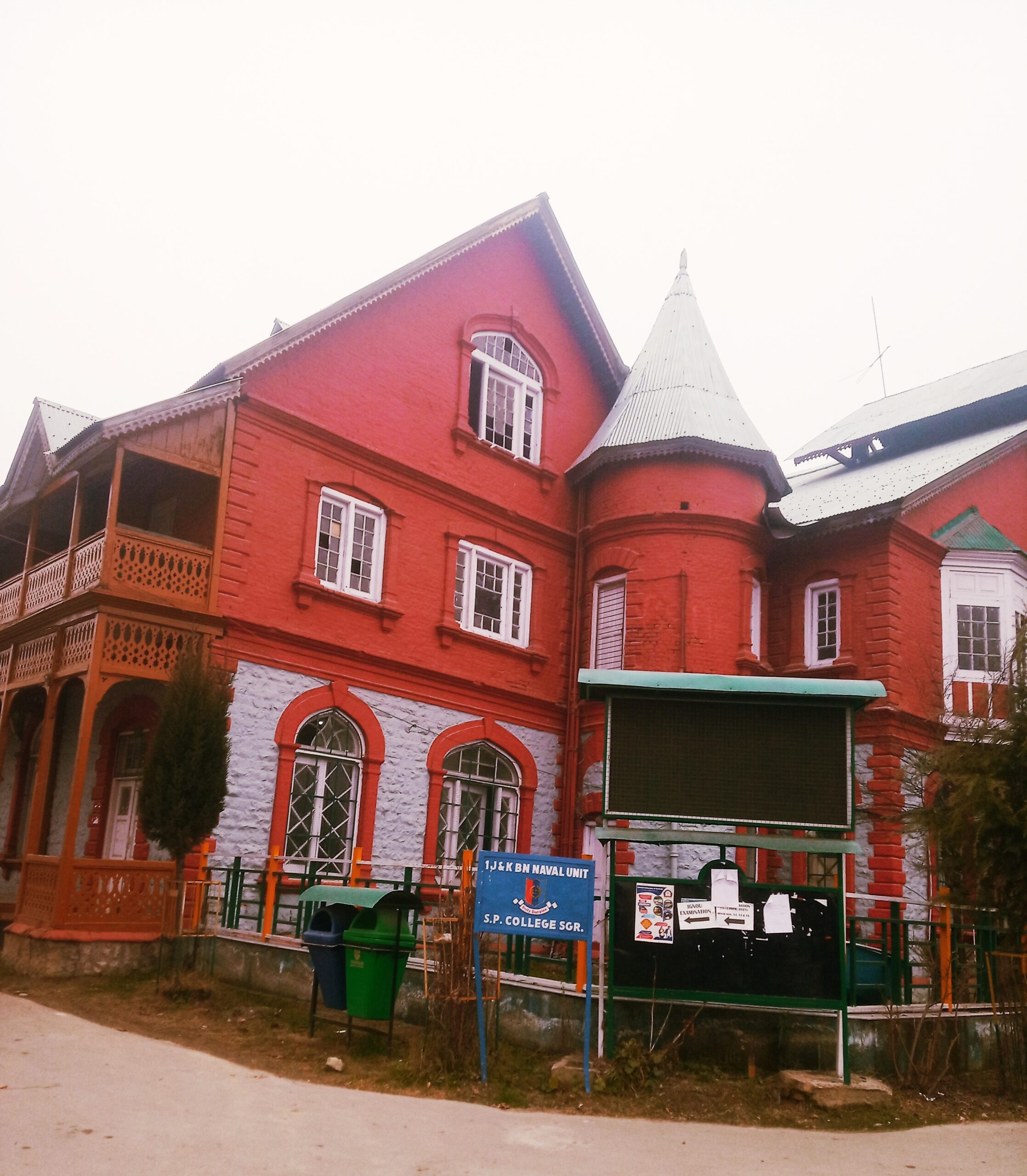SP College Srinagar stands not only as an educational institution but as a testament to Kashmir’s educational evolution and progress. Its enduring legacy, rooted in history, continues to shape the educational landscape, providing a beacon of knowledge and empowerment for generations to come.
By Mir Tanveer
In Kashmir Valley, a thorough exploration reveals the existence of multiple universities dedicated to advancing higher education through a multidisciplinary approach. These academic institutions operate under the competent leadership of esteemed academic experts and vice-chancellors, aligning with the new educational framework introduced by the National Education Policy (NEP) of 2020.
However, there was a time when the landscape of Kashmir’s education system did not boast these higher educational institutions or universities. In that historical era, only a handful of institutions laid the foundation for higher education policies and programs on diverse subjects. These educational pioneers trace their origins back to the Dogra regime of Kashmir’s historical backdrop, where measures were taken by rulers to establish high educational institutions for the benefit of Kashmiri residents.
Among these early institutions, SP College Srinagar stands out as a prominent beacon in enlightening the Kashmir Valley with the transformative power of knowledge. Sri Pratap College, the oldest and premier institute of higher education in Kashmir, has a rich history spanning one hundred and seven years. Established in 1905 as an intermediate college through the upgradation of the renowned Hindu High School, Srinagar, the institution’s journey began.

The visionary efforts of Dr. Annie Besant, a noted British social reformer and educationist, played a pivotal role in the establishment of the college. Affiliated with the Central Hindu College Trust, Benares, the college appointed Mr. M.U. Moore, an esteemed Irish scholar, as its first principal. Starting with a modest enrollment of eight students and six teachers, the institution quickly rose to the degree level in Arts. By 1911, the state government took control, renaming it Sri Pratap College in honor of the then ruler, Maharaja Pratap Singh.
Affiliated with the Punjab University, Lahore, in 1912, the college received significant patronage from the state government, fostering its growth during its nascent years. Throughout the 20th century, under the leadership of various notable figures, the college consistently developed, becoming a cornerstone in the progress of higher education in Kashmir.
Under the tenure of Prof. I. K. Sharga (1911-1921), the college introduced the science stream up to the intermediate level. Notable academicians and administrators like Prof M.U. Moore, Prof Vinamali Chakarvati, Prof Jia Lal Kaul, and Prof Saif-ud-din contributed significantly to the college’s development. The administration and faculty’s diligence and sincerity are reflected in the successful careers of numerous alumni who achieved eminence in various professions and held crucial positions in state administration.
While other colleges emerged in the valley post-1947, SP College maintained its primacy and academic excellence. Although the delinking of the Arts stream in 1975 altered its focus to exclusively science education, the college continued to thrive. The infrastructure, designed in the architectural style of its time, is now preserved as a heritage site, showcasing the master craftsmanship of that era. Situated on Mulana Azad Road, Srinagar, the institution’s heritage status makes it an integral part of Kashmir’s historical legacy from the Maharaja Regime.
Positioned as a historical educational institution, researchers and historians can delve into the journey of educational empowerment in Kashmir society during the Maharajas’ regime. Visitors gain insights into the evolution of higher education under the dynamic leadership of rulers and reformers of that time.
Engaging with current students, they express their pride in being part of this century-old institution, considering it among the premier establishments in Kashmir. They actively participate in college events, emphasizing the institution’s continued significance despite the proliferation of higher education options in the valley.

Noteworthy alumni, including Karan Singh, Sheikh Abdullah, Professor Rehman Rahi, Rafiq Pampori, Amanullah Khan, and Mufi Mohammad Syed, have left an indelible mark in various societal aspects, ranging from politics to education, poetry to broadcasting. Their global recognition adds to Kashmir’s rich legacy of knowledge.
In a significant stride, the college introduced postgraduate programs in Environmental Science and Chemistry in 2003, affiliating with the University of Kashmir. Further, integrated postgraduate courses were offered in 2017 through affiliation with the Cluster University Srinagar. Additional postgraduate programs in Botany, Zoology, and Physics were initiated in 2018. As of 2022, aligning with NEP 2020, the college is progressing towards a multidisciplinary approach, reflecting modern perspectives in education.
The institution plans to broaden its science education spectrum, introducing skill-based courses like B.Sc. in Forensics and B.Sc. in Human Genetics, aligning with the objectives of NEP-2020. This strategic move aims to engage the current generation and significantly enhance youth employability.
SP College Srinagar stands not only as an educational institution but as a testament to Kashmir’s educational evolution and progress. Its enduring legacy, rooted in history, continues to shape the educational landscape, providing a beacon of knowledge and empowerment for generations to come.
The views expressed in this article are solely those of the author and do not necessarily reflect the opinions or views of this Magazine.

Leave a Reply